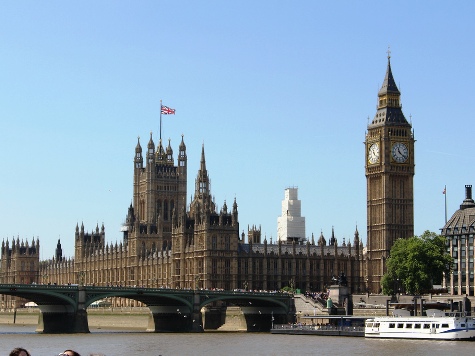
Only a third of British voters believe that Scottish and Welsh MPs should have the right to vote over English laws, according to a new poll by Ipsos Mori. The survey is the latest evidence that a new constitutional settlement will have to be sought if Scotland votes ‘no’.
Since devolution was put in place in Scotland and Wales in 1998 the two countries have largely governed their own affairs, but MPs from the countries are still allowed in vote at the House of Commons.
This has led to various examples of Scottish MPs voting through unpopular policies for England that do not apply to them. In the case of university tuition fees, a majority of English MPs opposed the plan but it was carried after Scottish MPs voted in favour of it. This means that English students pay fees but the Scottish students do not.
Concerns about Scottish MPs voting in Westminster for laws that only apply to England was first highlighted by the veteran Labour MP Tam Dalyell in 1977. At the time he referred to it as the “West Loathian Question” but it did not become an issue until the Scottish Parliament and Welsh Assemblies were created.
Northern Ireland also has an assembly and a government but is rarely included in concerns because there are only 18 MPs from the province out of a total of 650. Also the assembly has been abolished a number of times, returning direct rule from Westminster. Scotland on the otherhand has 59 MPs and Wales has 40. Traditionally, most of these MPs were from the Labour Party.
The poll for Joseph Rowntree Reform Trust showed 33 percent of voters wanted Scottish and Welsh MPs barred from voting on English only measures. Just over a fifth backed the creation of a separate English parliament, full devolution in England has traditionally proved unpopular as a result of concerns about costs.
This has led to suggestions that Scottish and Welsh MPs should be asked to leave the House of Commons when votes on English only matters arise. But this in turn has led to fears that having a two-teir system of MPs could prove even more divisive.
The poll will add further weight to the calls for a whole new constitutional settlement if Scotland votes ‘no’. This would almost certainly include a package of new powers for the Scottish Parliament, but what changes should be offered to other parts of the UK is less clear.
Conservative MP Andrew Bridgen, told The Times a move towards a federal UK would be needed after the vote. He said: “With no parliamentary scrutiny or debate, we’ve got to a position which many English MPs and our constituents will feel is ‘heads Salmond wins, tails England loses’.”
As a result of small reforms over many years almost every part of the UK is governed differently. The London Assembly is a scrutiny body with few powers, whilst the Welsh Assembly has the power to alter policies and the Northern Ireland Assembly can actually make laws.
The British system has so many different rules and anomalies that it can be hard to understand without specific knowledge on how every region works.

COMMENTS
Please let us know if you're having issues with commenting.